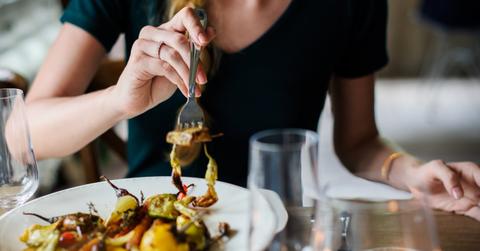People Who Start Buying Organic Rarely Go Back, Says Recent Study
Researchers have discovered that once people decide to move away from conventional farming products, the preference for organic grows exponentially—and it sticks.
Updated May 25 2019, 5:27 a.m. ET
A new study from the Journal of Consumer Research is disproving some long held theories about how people make changes in what they shop for in the produce aisle. Researchers followed 8,700 consumers for 20 months, using information gleaned from a customer rewards service at a huge Dutch retailer. It has generally been assumed that people start with one organic product—most commonly, organic milk. They may then take the next step up, but it's a fairly long journey from one product to the next. Actually, it's an incredibly smooth transition.
Beyond Pesticides reports that John Thøgersen, the study's coauthor and professor at the Aarhus University of Business and Social Science in Denmark, shared a press release explaining the significance of their findings.
“In connection with organic consumption, there has previously been talk of an ‘organic staircase’ in the sense that consumers are generally buying certain organic products before others. But our research shows that in fact, we’re dealing with an escalator where the upward movement is taking place automatically. Once you’ve purchased your first organic product, you’re not likely to stop. You’ll continue, and over time, you’ll increase your organic shopping list. And you’ll even be following a rather predictable consumption pattern.”
Basically, it's a lot easier to make the switch than people thought.
After milk, people generally move on to buying fruits and vegetables, then finally eggs and things like flour or sugar. Eventually, almost everything they buy right up to frozen foods are organic. In 2016, U.S. consumers spent $43 billion on organic products, which is $4.2 billion more than the previous year. This climb is significant, because organic farming is often considerably better for the environment, from soil to water quality, and limits the use of dangerous pesticides.
If you've made the switch from conventional to organic produce, you probably also know that they taste better too. But that's not what's driving people. Researchers previously thought that people make a perceived "moral" choice, feel good, and then feel free to make a comparatively naught choice right after. So they might buy organic milk, then run and buy some Oreos to dip in it. Thøgersen says it's actually the opposite. Making one good choice leads people to want to make more good choices.
“What’s interesting is that something is making the organic consumers stick to their guns. Something is making them stand fast. Our study doesn’t tell us anything about why this is the case, but if we include our knowledge from previous research in the area, we’re able to make an educated guess,” Thøgersen wrote. “It becomes a way in which we define ourselves. As a result, we build an identity around the notion of buying organic products, and we’re highly unlikely to suddenly change our moral values.”
He added, "Once a person has decided to do good, he or she will actually be even more likely to continue to do good.”
